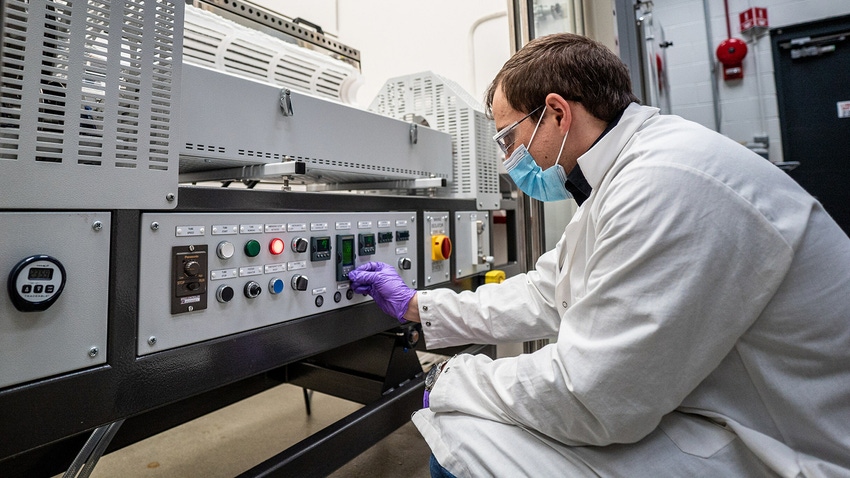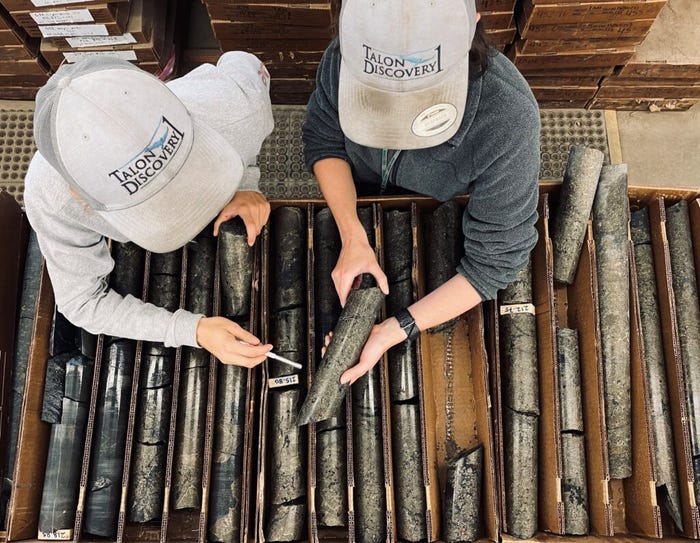From Mining to Recycling: Argonne Innovates in Sustainable Battery Production
From repurposing mining waste to pioneering advanced recycling techniques, Argonne National Laboratory spearheads sustainable battery production solutions.

In the realm of electric vehicle (EV) battery technology, sustainability isn't just a goal—it's a mandate driving innovation across the entire lifecycle of battery production. The US Department of Energy’s (DOE) Argonne National Laboratory is pioneering transformative initiatives that span from the utilization of mining waste materials to the development of innovative recycling processes. That is, from both before and after battery production and first use.
Making more batteries with fewer materials
In a step towards reducing reliance on mined resources and bolstering domestic battery supply chains, Argonne National Laboratory has embarked on a collaboration with Talon Metals, a mining company based in the American Midwest.
The endeavor is fueled by a dual-purpose ambition: to mitigate mining waste and enhance the production of electric vehicle (EV) batteries, crucial components in the transition to cleaner transportation solutions. At the core of this initiative lies a novel process developed by Argonne, leveraging mining by-products to fuel another production process for lithium iron phosphate (LFP) cathodes.
Talon Metals' innovative approach to mining and processing high-grade nickel ores presents a promising avenue for sustainable resource utilization: By maximizing the recovery of valuable by-product minerals, such as iron compounds, Talon says it aims to revolutionize the traditional paradigm of mineral processing, minimizing waste and maximizing value.
"We turned to Argonne to help us find a way to unlock more value from nickel deposits," stated Talon CEO Henri van Rooyen. "Increasing the overall yield of critical minerals for battery manufacturing translates into less disturbance of the earth for mining."
Argonne and Talon have a Collaborative Research and Development Agreement, through which researchers at Argonne's Materials Engineering Research Facility (MERF) are spearheading the development and optimization of an LFP synthesis process, utilizing iron sulfides from Talon to craft high-quality cathodes.

A geologist and geophysicist at Talon examine high-grade nickel core samples from the company’s exploration operations in Minnesota. TALON METALS
The implications of this partnership extend far beyond the realms of production efficiency. If successful, the research could catalyze a paradigm shift in domestic battery supply chains, fostering increased self-reliance and resilience in the face of global disruptions.
"Our partnership with Talon Metals seeks to make more efficient use of critical materials in domestic battery supply chains so that the U.S. can rely less on other countries to achieve its clean energy goals," affirmed Jeff Spangenberger, Argonne's materials recycling group leader.
Collaborating for sustainable recycling practices
Complementing its efforts to enhance material utilization, Argonne National Laboratory has joined forces with Toyota Motor North America to improve battery recycling methodologies. Recognizing the imperative of reducing costs and environmental footprints associated with battery disposal, the collaboration aims to pioneer innovative approaches to recycling battery components.
At the forefront of this endeavor lies the concept of direct recycling, a novel technique that preserves the chemical structure of end-of-life battery components, thereby minimizing waste and reducing manufacturing costs. By collaborating with Toyota, Argonne seeks to demonstrate the viability of this approach for cathodes in lithium-ion batteries, a cornerstone of EV technology.
"Direct recycling is cutting-edge in the battery industry," stated Argonne Principal Materials Scientist Albert Lipson. "There are a few startup companies with small-scale pilot projects underway. But implementation at commercial scale is still in need of new innovations."
As with Talon, Argonne is working with Toyota through a Cooperative Research and Development Agreement: Leveraging Argonne's patent-pending direct recycling process developed by the ReCell Center, the collaboration aims to extract and regenerate cathode materials from both end-of-life and new Toyota plug-in hybrid EV batteries.
The implications of this collaboration extend beyond mere environmental stewardship, according to Argonne: By demonstrating the cost-effectiveness and performance viability of direct recycling, the partnership holds the potential to catalyze widespread adoption of sustainable recycling practices across the EV industry.
"Our goal is to prove that the process can make high-performing cathodes cost-effectively while reducing energy use and emissions," affirmed Lipson. "If we're successful, EV and battery manufacturers can potentially commercialize the process."
About the Author(s)
You May Also Like




.jpg?width=300&auto=webp&quality=80&disable=upscale)
